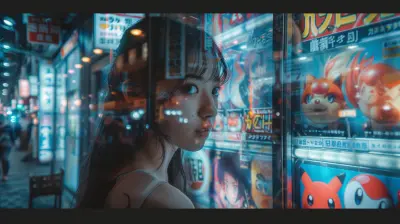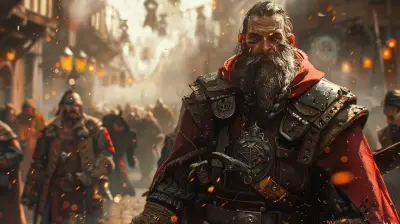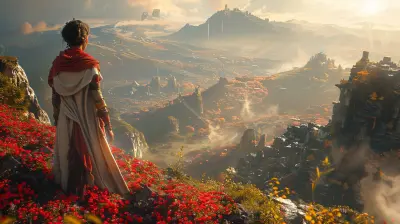Breaking Stereotypes With Diverse Character Representation
5 November 2025
When was the last time you played a game and felt genuinely connected to the character you were controlling? Maybe it was their backstory or the way they looked or even the struggles they faced. Now, think about this: how often do you see diverse characters that truly break stereotypes and represent people from all walks of life? Not often enough, right?
Gaming has come a long way—graphics are stunning, gameplay is smoother than ever, and stories are deeper and more immersive. But when it comes to diversity and representation, it’s been more like a trudge through molasses. Thankfully, we’re starting to see some real change, and honestly? It’s about time. Let’s dig into why diverse character representation matters and how breaking stereotypes in games isn’t just the right thing to do—it’s also making gaming more fun and relatable for everyone.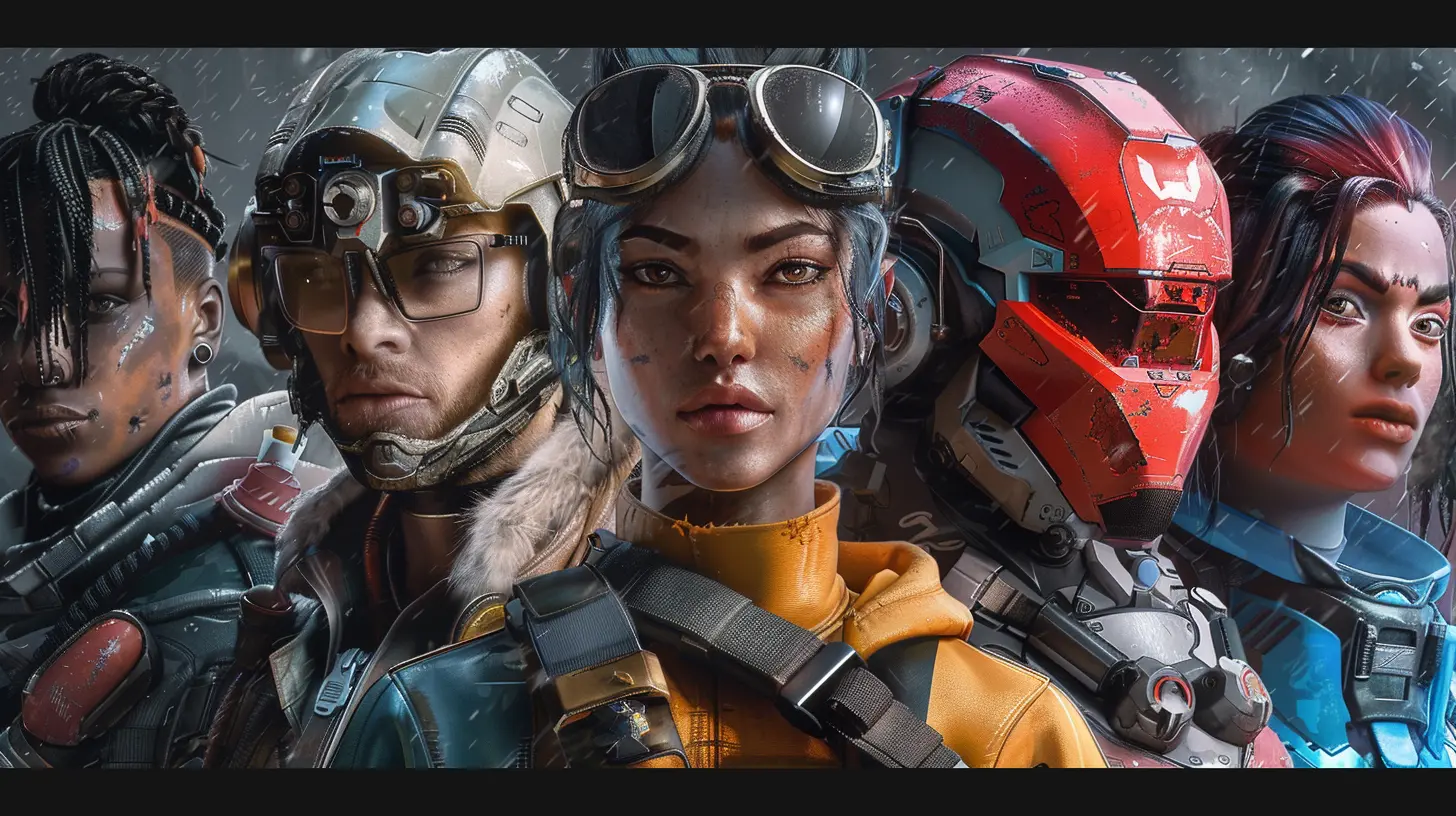
Why Representation Matters: It’s Not Just a Buzzword
Let’s face it: representation is a big deal. Games, at their core, are about connection. Whether you're storming a castle, solving a mystery, or exploring a post-apocalyptic wasteland, you’re stepping into someone else’s shoes. But what happens when those shoes rarely reflect the diversity of actual gamers? It creates a gap—a disconnect between players and the virtual worlds they inhabit. And honestly, who wants that?Diverse representation isn’t just about checking off boxes. It’s about letting players see themselves reflected in the games they love. It’s about acknowledging that gamers aren’t a monolith. They’re different ages, ethnicities, genders, sexual orientations, and abilities. So why should the characters they play be cut-and-paste stereotypes?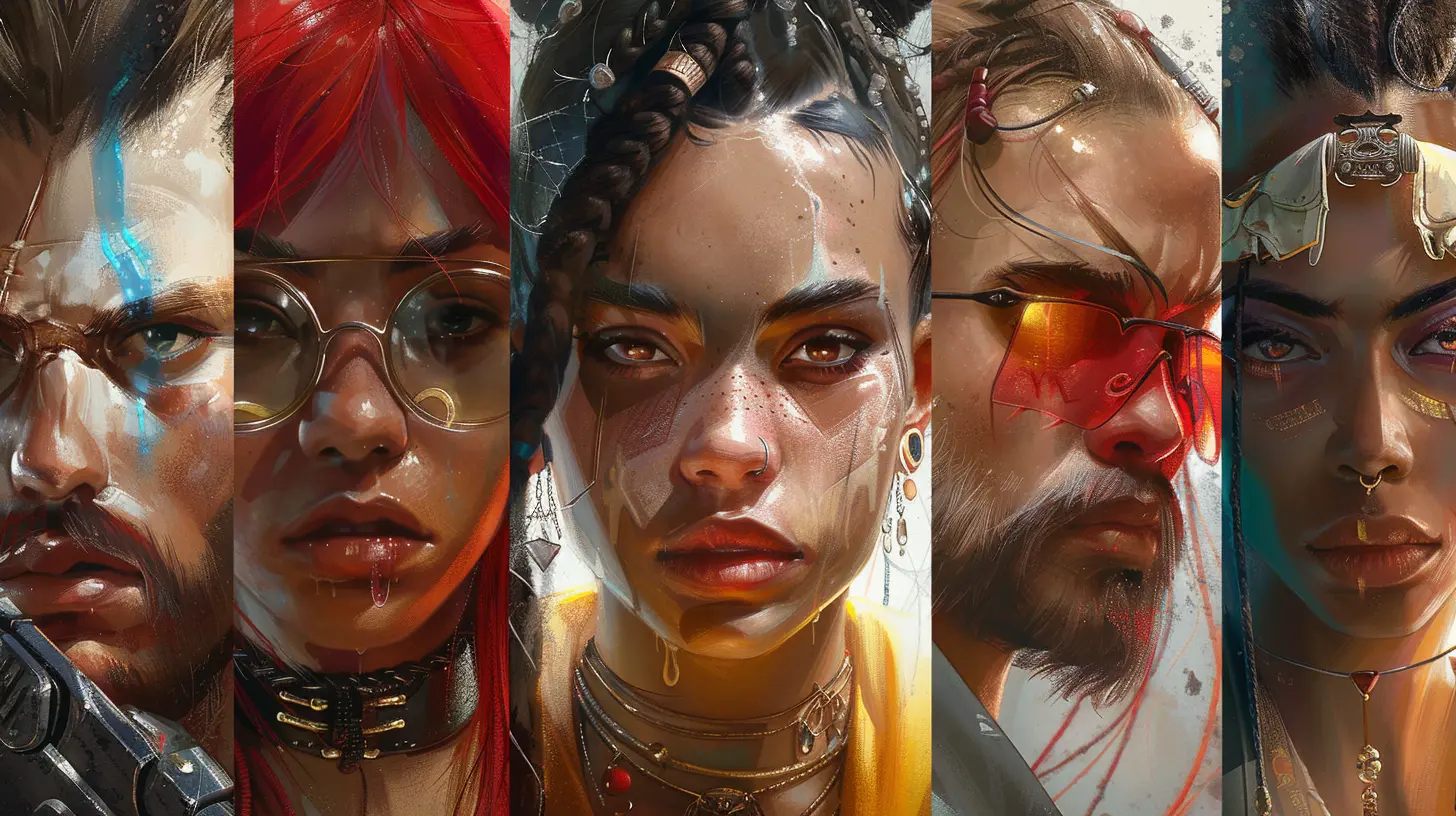
The Problem With Stereotypes in Games
Okay, let’s talk about the elephant in the room—stereotypes. How many times have we seen the same overused tropes in character design? You know the ones: the stoic white male protagonist, the female character who exists only for eye candy, or the villain whose only defining trait is their cultural background. Yikes.These stereotypes aren’t just lazy storytelling—they’re harmful. They reinforce outdated ideas and make entire groups of people feel invisible or misrepresented. Imagine logging into a game and finding that the only character who looks like you is reduced to a caricature. It’s disheartening, to say the least.
But here’s the silver lining: things are changing. Developers are starting to listen to their audiences, and the industry is moving toward creating richer, more authentic characters. And let me tell you, it’s making a world of difference.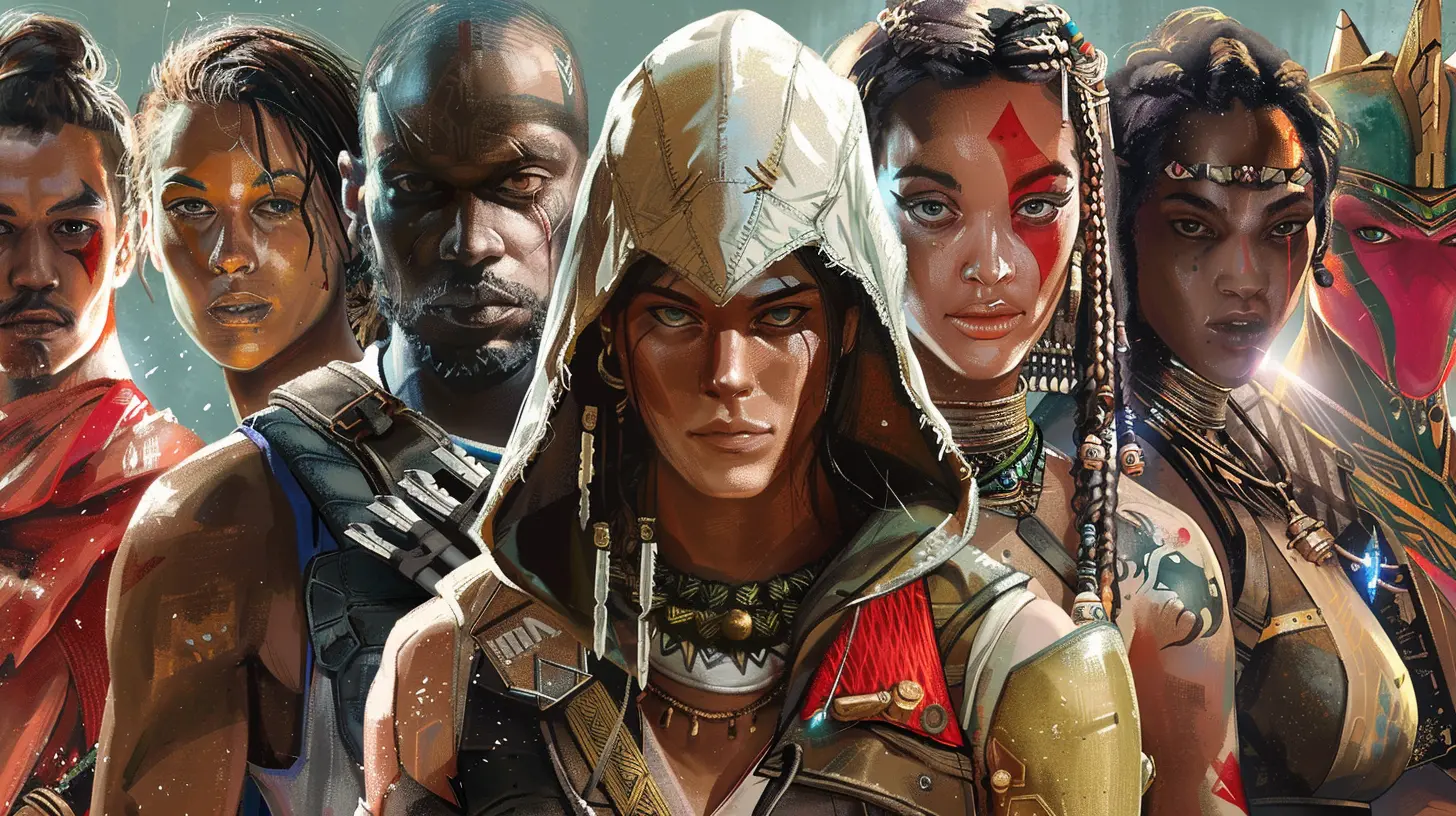
How Games Are Breaking Stereotypes
Now, let’s get into the good stuff—the games (and creators) that are breaking the mold.1. The Rise of Strong, Female Protagonists
Gone are the days when female characters were just sidekicks or damsels in distress. Games like The Last of Us Part II gave us Ellie, a complex and flawed heroine who’s as real as it gets. She’s strong but vulnerable, driven yet conflicted. She’s not a stereotype—she’s a human being.Other games, like Horizon Zero Dawn, introduced us to Aloy, a fiercely independent character who’s out there saving the world without being reduced to a predictable “tough girl” trope. These characters are proof that women in games can be more than just background decoration—they can be the heart of the story.
2. Ethnic and Cultural Diversity
Representation of different ethnicities has also seen significant growth. Titles like Assassin’s Creed: Origins put players in the shoes of Bayek, a proud Medjay warrior from ancient Egypt. The game didn’t just throw in an Egyptian protagonist for the sake of it—it embraced the culture, history, and lore of the setting in a way that felt authentic and meaningful.Similarly, Black Panther’s influence can be felt in games like Marvel’s Spider-Man: Miles Morales. Miles isn’t just a re-skinned Peter Parker—he’s a biracial teenager with a story that acknowledges both his Afro-Latino heritage and the struggles that come with stepping into a hero’s shoes. It’s nuanced, it’s powerful, and most importantly, it’s real.
3. LGBTQ+ Representation
For a long time, LGBTQ+ characters were either completely absent or relegated to stereotypical roles. But games like Life is Strange have flipped that script. Max and Chloe’s relationship wasn’t just thrown in for shock value—it was a heartfelt, genuine exploration of identity and love.Another standout is The Last of Us Part II, which not only features a lesbian protagonist but also includes a transgender character, Lev, whose story is treated with care and respect. These games prove that LGBTQ+ representation isn’t just important—it can lead to some of the most memorable and impactful moments in gaming.
4. Characters with Disabilities
This is an area where gaming still has a long way to go, but we’re seeing glimmers of progress. One standout example is Uncharted 4: A Thief’s End, which introduced players to Nadine Ross. While she doesn’t have a physical disability, her character represents the strength and complexity women (especially women of color) can bring to action-packed roles.For physical disabilities, Celeste stands out for addressing mental health challenges like anxiety and depression through its protagonist, Madeline. The game uses clever metaphors to provide a relatable and honest look at inner battles many players face.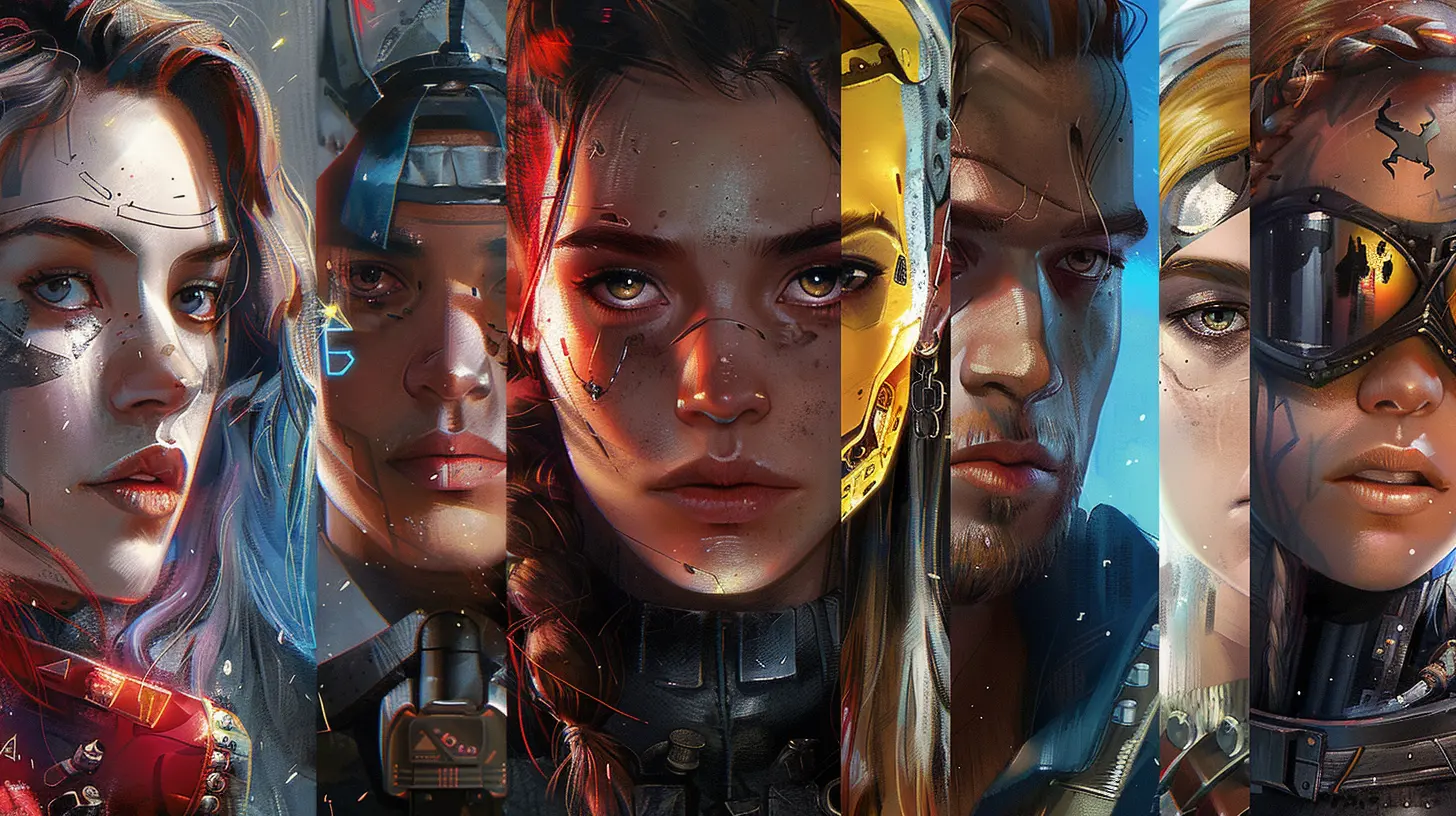
Why Breaking Stereotypes Benefits Everyone
You may be thinking, “Okay, but why does this matter for me?” Well, here’s the thing: diverse representation isn’t just good for the people being represented—it’s good for all gamers.When games embrace diversity, they become richer and more engaging. They expose players to different perspectives, encouraging empathy and understanding. Plus, let’s be real: it’s just more fun to play a game where the characters feel like real people with unique stories, rather than cookie-cutter archetypes.
Breaking stereotypes also opens the door for more creative storytelling. When developers aren’t bound by tired tropes, they can build worlds and characters that surprise and delight us. It’s a win-win.
What Gamers Can Do to Push for Change
So, how can we, as gamers, encourage more diverse character representation?- Vote with Your Wallet: Support games that prioritize diversity and representation. Money talks, and your purchase tells companies what you want to see more of.
- Be Vocal: Don’t just stay silent when you see something amazing—or problematic. Use social media, forums, or even reviews to let developers know what you think.
- Demand Better: If a game relies on harmful stereotypes, call it out. Constructive criticism can help push the industry in the right direction.
- Celebrate Wins: When a game nails representation, shout it from the rooftops. Positive feedback is just as important as criticism.
The Future of Gaming Is Bright (and Diverse)
We’re not where we need to be yet, but the gaming industry is heading in the right direction. Developers are recognizing that players want more than stereotypes—they want stories and characters that reflect the real world’s complexity and beauty. And honestly, that’s something worth celebrating.Breaking stereotypes in games isn't just an industry trend—it’s a movement. It’s about creating a space where everyone feels seen, heard, and valued. So, the next time you’re scrolling through your game library, think about the progress we’ve made—and the incredible journey still ahead.
all images in this post were generated using AI tools
Category:
Video Game CharactersAuthor:

Francesca West
Discussion
rate this article
2 comments
Flynn McLaury
Great article! Diverse character representation enhances gameplay and storytelling, enriching player experiences and breaking outdated stereotypes in the gaming community.
November 10, 2025 at 4:14 AM

Francesca West
Thank you! I'm glad you found the article meaningful—diverse representation is essential for a richer gaming experience!
Delta Hernandez
Empowered diversity in gaming inspires us all to dream!
November 8, 2025 at 5:50 PM

Francesca West
Thank you! It’s inspiring to see how diverse representation in gaming can spark dreams and broaden horizons for everyone.
